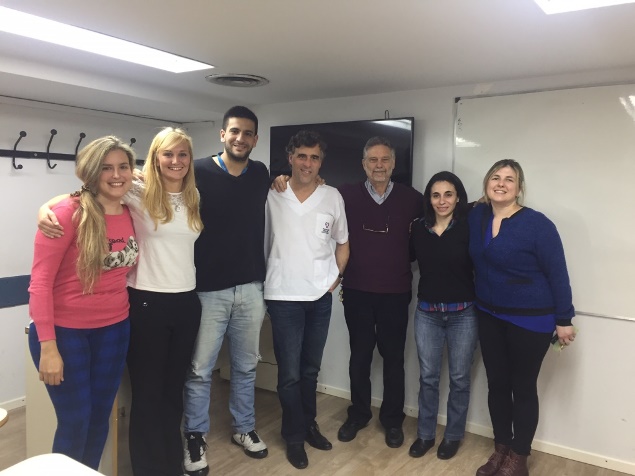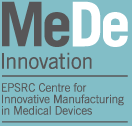Growth stories: Jessica Kirk

September 26, 2017
In 2016, MeDe Innovation funded 7 PhD students to undertake a secondment within the scope of our research. Our ‘Growth stories’ series gives an overview of their expereinces, and highlights how our funding is helping to develop their careers
External placement at the Favaloro Institute, Buenos Aires, Argentina – Jessica Kirk
The Favaloro Institute is a university which works closely with Favaloro hospital to carry out clinically relevant human and large animal studies for the development of future therapies. I had the opportunity of being part of Dr Alberto Crottogini’s research group, who specialise in developing therapies to treat myocardial infarctions. I chose to do my placement in Argentina for a variety of reasons. I wanted to explore what it is like to work in a different research group, but also to see how I would fare in a Spanish speaking country with many cultural differences to the British way of life. My research focuses on in vitro models for nerve regeneration, however I wanted to experience what it would be like to work in a different area such as cardiac problems and gain experience with surgical techniques and research with large animal models.
I was given the opportunity to assist with a sheep myocardial infarction model, whereby the infarction was instigated by selecting and suturing arteries that supply the muscle of the left ventricle. The infarct site was then treated with a PLA scaffold seeded with donor diaphragm muscle cells, virally transfected with the gap junction protein ‘connexin 43’ (which is highly expressed in growing muscle cells). I learnt how to read MRI scans and echocardiograms to investigate heart function before and after the surgery. I was able to attend a microsurgery training course where I was taught how to suture the femoral artery in rats and observed surgeons performing laparoscopic surgery using biomaterial scaffolds to secure the oesophagus through the diaphragm to prevent reoccurrence of gastro-herniation.
These are but a few examples from the valuable experience, which would not have been possible without the donation from MeDe Innovation, that paid for my flights, accommodation and much of my living expenses whilst there. I was able to present my work and a summary of the work of my colleagues in medical and biological engineering to a group of 18 surgeons and researchers, who would love to engage with the University of Leeds and would be happy to carry out in vivo investigations using their large animal models.
Thank you for this opportunity.
